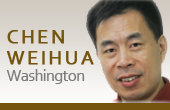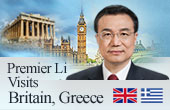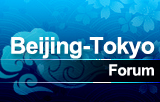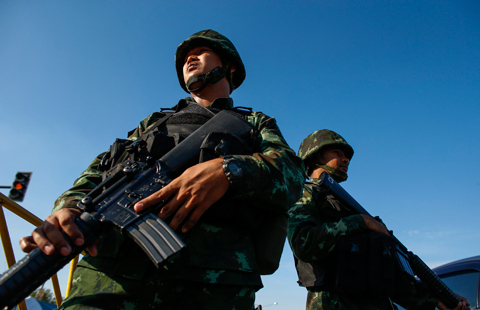Singapore FM talks about China's emerging role
(chinadaily.com.cn) Updated: 2014-06-16 15:41China Daily has recently interviewed Singaporean Minister for Foreign Affairs and Law K. Shanmugam. The following are excerpts of the interview.
1. How do you evaluate the current bilateral relations?
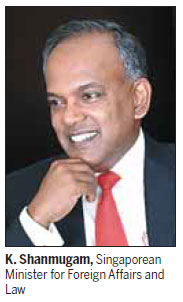 When I visited China in 2012, Singapore and China were already long-established friends. Our strong economic relationship has become even stronger, and last year we were the largest foreign investor in China and your second-largest trading partner in ASEAN. You are our largest trading partner.
When I visited China in 2012, Singapore and China were already long-established friends. Our strong economic relationship has become even stronger, and last year we were the largest foreign investor in China and your second-largest trading partner in ASEAN. You are our largest trading partner.
Our political relationship is also very strong. And on the people-to-people relationships, tourism and other areas, the picture is rosy.
This year, our prime minister will visit twice: for APEC and the China-ASEAN Expo. Our president has been invited to the Youth Olympics in Nanjing this year, and next year we hope to mark the 25th anniversary of our diplomatic relationship and the 50th anniversary of Singapore's independence, with high-level state visits.
2. There was a "war of words" between China, the United States and Japan during Shangri-La Dialogue in Singapore. What's your perception?
Regional maritime issues were discussed during the Shangri-La Dialogue. That relationship between Beijing and Washington is the most critical relationship in the world. The second most important relationship in this region is that between Beijing and Tokyo. All three have to live with one another. That requires wisdom of the three capitals (Washington, Beijing and Tokyo).
China is a rising power. That is the fact. China doesn't want any external trouble right now, because the biggest issues facing China are within China. China is very rich, but has a 1.3 billion people to manage. The development of the country still has some way to go. So given all these complications, most of us believe China doesn't want any an external distractions. It is going to require wisdom, tact and diplomacy (for China) to deal with the current issues.
If Japan becomes too nervous, there's always a possibility of Japan arming itself even more. Is that in China's interests? Is that in the interests of Southeast Asia? Obviously not.
3. What is Singapore's role between China and other countries?
Singapore is seen as both Asian but at the same time Westernized. So when we go to Washington, when we speak, people understand what we are saying. And because we are small, we are not a threat to anyone, so we can speak freely and frankly. So in my speech in Washington three weeks ago, as well as another speech two years ago, I made a number of comments about China. This is our way of trying to bring a better understanding of China to a senior American audience.
4. What's your advice on China managing its international profile?
You have to accept that public opinion in many countries is being influenced against China. Once such opinion hardens, the leaderships in those countries will have to move in a way in accordance to their public's opinion. That is not in China's interests. So it is in China's interests to make sure that its international profile is positive.
In order to have a positive international image, its actions, whether at sea or on land, must to be seen to be fair, just and in accordance with international law. If China can show it is in accordance with international law, then it's difficult to fault China, and you can shape public opinion. For example, the latest statement China has put to the UN secretary-general is a very good one. It referred to China's 1958 declaration, names all the islands and reefs it claims, states the basis of its claims, mentions China's adherence to international law, including UNCLOS, and acknowledges that the maritime boundaries with Vietnam have not been delimited. Unfortunately not many people, nor the international media, have focused on its significance.
5. What are China's major challenges?
We tell the others, Americans and others, they have politics, but Chinese leaders also have politics. China's leaders cannot be seen as soft on giving up sovereignty. You have a huge amount of internal challenges, you also have lots of netizens, and you have to manage and not be seen to be soft. So the outside world ought to understand the huge challenges faced by Chinese leaders. That's why I said it's going to require a lot of wisdom in the three capitals.
6. What's ASEAN's role in dealing with maritime disputes between China and other ASEAN countries?
ASEAN as a whole doesn't intervene and cannot intervene regarding merits of territorial claims. Those are to be dealt with between the claimant states and China. It is in our vital interests that there's no serious physical clash, no rising tension, and disputes are sorted out in a peaceful way between the claimant states, in accordance with international law, including UNCLOS.
It is in China's interests to have a strong, vibrant ASEAN, united and neutral, but considering China as the most important partner. ASEAN does not point fingers. It's neutral and credible. That can be ASEAN's role.
7. What's your opinion on the number of regional trade pacts, including the China-ASEAN FTA and the TPP? Are they competing with each other?
We are a significant global trading nation and one of the original members of the TPP. Subsequently, others came in and the US wants to come in. Singapore has publicly said that we think China should be part of the TPP. We would welcome China's participation when it is ready.
At the same time, we have encouraged China to upgrade the China-ASEAN FTA. We also actively encouraged China to broaden and deepen the Regional Comprehensive Economic Partnership.
Our approach is, the more such arrangements, the better it is. We are small and we see such agreement from a very economic prospective. Big countries would look at it from a political angle, but we have publicly said China is the second-largest economy in the world and it makes sense for it to be included.
Originally, China said we were not invited and the US said nobody is telling China not to come in. So it's between Beijing and Washington to sort it out.





